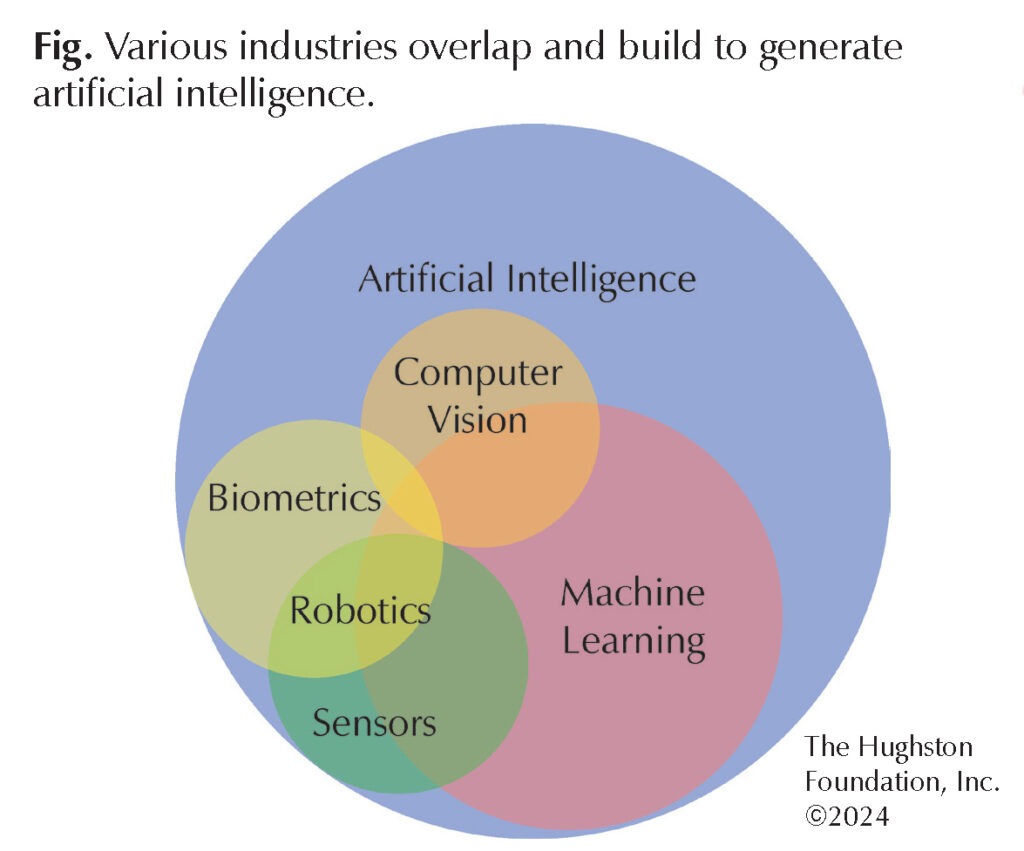
Artificial Intelligence (AI) is the study of teaching technology to think and act like humans. Although AI has been around since the 1950s, after the release of ChatGPT in November of 2022, it has quickly become a household topic. You already use AI in a number of ways. For example, AI helps write emails, finishes sentences, organizes the photos on your phone, and even chooses which online ads to show you. Autocorrect, driving navigation, and virtual assistants like Siri and Alexa are also common examples of how AI can be helpful in your daily life. As AI continues to grow as a field, it is important for us to understand how it affects our medical care as well.
 How does AI advance healthcare?
How does AI advance healthcare?
Healthcare providers already use AI to make many aspects of your medical care more personalized and effective. AI helps hospital systems improve workflow and efficiency, allowing you to spend less time waiting. Chatbots and virtual health assistants powered by AI provide instant medical advice and support to patients. AI can also help to reduce paperwork and allow your doctor to spend more time with you (Fig).
In surgery, AI helps surgeons with precision, enhancing the success of procedures and reducing recovery time. Robotic-assisted surgery simply means that the robot is a tool that surgeons can use to perform a more precise and reproducible surgical procedure. The robot does not do the surgery without the surgeon. However, the robot provides invaluable information and technology that helps the surgeon perform the procedure. Overall, AI in medicine enhances efficiency, accuracy, and individualized care, contributing to better outcomes for patients.
Can AI diagnose an illness or injury?
AI can significantly help doctors in diagnosing illnesses or injuries through various applications. An example of this is in medical imaging analysis. Studies have shown that AI algorithms can quickly and accurately review large numbers of medical images including x-rays, magnetic resonance imaging, or MRI (test that shows the bone, muscles, tendons, and ligaments), ultrasound (uses soundwaves to view inside the body), and computed tomography, or CT scans that creates a series of x-rays to show bones and soft tissue. AI can find patterns and abnormalities that may be challenging for the human eye to identify, helping in the early detection of diseases or injuries. Moreover, AI systems can help to interpret pathology slides, helping doctors diagnose conditions like cancer earlier and with more efficiency.
AI can also take your entire medical picture into account by analyzing large amounts of patient data, including medical records, genetic information, and lifestyle factors. By identifying patterns within the data, AI can assist doctors in making more informed and personalized diagnoses. Additionally, AI-powered diagnostic tools can provide decision support, offering recommendations to physicians based on the latest medical research and knowledge. Using wearable devices and sensors can help your doctor monitor you at home rather than going to a clinic or staying in the hospital. These smart devices can monitor glucose levels, heart rate, weight, body temperature, plus much more and report the information to your doctor in real time. The AI automatically records the information in your medical record and it informs your physician if you experience an abnormal occurrence.
AI and the future of medical research
AI is set to revolutionize medical research in several ways. AI will play a massive role in analyzing large amounts of information quickly and accurately. AI algorithms can sift through large datasets like patient records and genetic information to identify patterns and correlations that humans might miss. This helps researchers understand diseases better, discover potential risk factors, and develop more targeted treatments. AI can also play a crucial role in drug discovery by predicting how different compounds may interact with the body. This will speed up the research process and can lead to the development of safer and
more effective medications.
Overall, AI is a powerful tool in medical research, enabling scientists to make groundbreaking discoveries and advancements in healthcare. While AI presents tremendous opportunities for medical research, it also comes with challenges such as ensuring data privacy, addressing biases in algorithms, and establishing ethical guidelines. Collaborative efforts between AI experts, healthcare professionals, and regulatory bodies are crucial to harness the full potential of AI in advancing medical research responsibly.
The good comes with challenges
Using AI in healthcare presents both unique advantages and challenges. On the positive side, AI can enhance the speed and accuracy of disease diagnosis, aiding healthcare professionals in identifying illnesses at early stages and recommending personalized treatment plans. Machine learning algorithms are good at analyzing extensive medical information, offering valuable insights for research and medication development. Additionally, AI can perform routine tasks automatically, improving overall efficiency and reducing the workload on healthcare staff and providers. AI can also help with remote patient monitoring and telemedicine, providing timely healthcare access while also reducing the burden on healthcare facilities. However, there are also challenges that we must also consider when using AI.
Privacy concerns with the analysis of sensitive patient data, healthcare provider training, and the potential loss of jobs are all understandable concerns without easy answers. In addition, AI is unable to provide human empathy and cannot replace the relationship that you have with your doctor and medical team. Just as your doctor might caution you about the dangers of using online searches for your medical care, patients also need to be cautious about using AI. You should consider AI as a tool that can assist you and your doctor and not a replacement for your healthcare team. The goal, therefore, should be on achieving a
balanced and appropriate use of AI to maximize benefits while minimizing drawbacks.
Author: Nathan Li, MD | Columbus, GA
Last edited on March 19, 2024